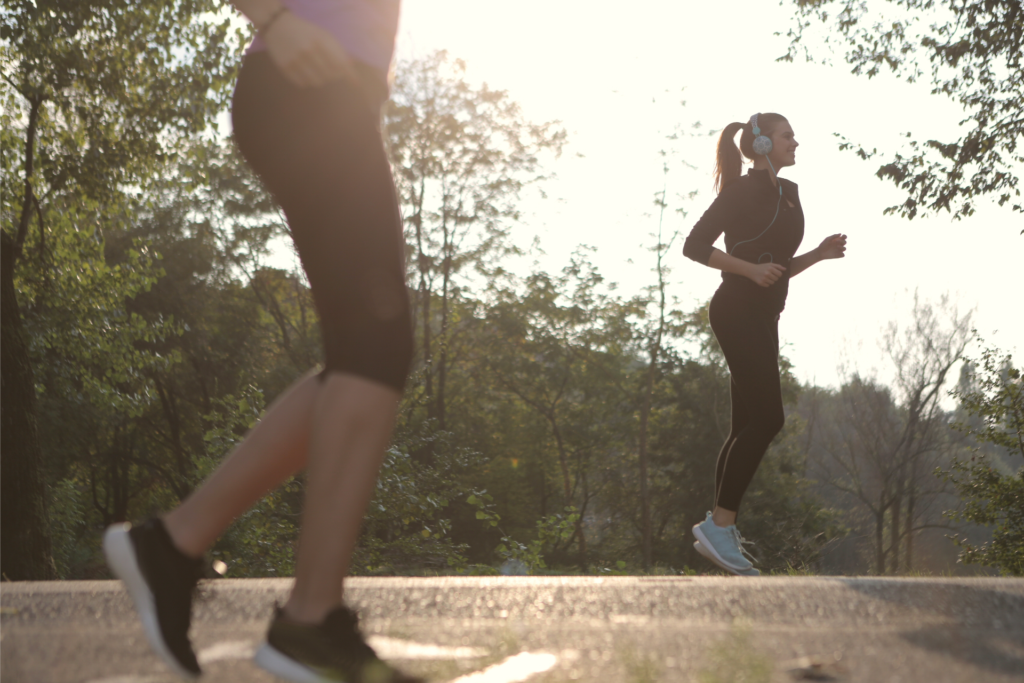How many times have you felt the motivation to exercise in the late hours of the evening but have worried if it’s too late to exercise before bed? You know you will have a burst of energy post-workout, but will that prevent you from being able to fall asleep?
While a consistent exercise schedule can benefit your overall sleep health, can the direct effects of your workout make it harder to fall asleep? While studies on the matter are divided, giving yourself an hour of rest before bed avoids the troubles of onset insomnia and allows you to reap the sleeping benefits of daily exercise.
How Exercise Benefits Your Sleep
If you’ve been following the Sleep Centers of Middle Tennessee blog for a while, then you know that regular physical activity can help improve your sleep quality and even help relieve sleep apnea symptoms.
Exercising can also help you get better sleep by:
- Reducing sleep onset— the time it takes for you to fall asleep
- Reducing how much time you spend awake during the night
- Can increase total sleep duration
- Helping reduce daytime sleepiness
- Potentially reducing your need for over-the-counter or prescription sleep aids
- Can help reduce stress and boost your mental health
However, the timing of your exercise can affect your sleep more than you may expect.
Is It Bad to Exercise Before Bed?
Yes and no. Many experts debate this point, and the results of past studies have varied considerably.
Some believe vigorous exercise a few hours before bedtime can cause poor sleep by raising your body temperature, heart rate, and adrenaline levels. However, there is evidence that exercising before bed may not produce any adverse effects at all.
One survey published by Sleep and Biological Rhythms found that most people who exercised at 8:00 PM or later experienced benefits including:
- Faster sleep onset
- A healthy amount of deep sleep
- They generally woke up feeling well-rested [1]
Another study found that those who exercised in the evening had more slow-wave sleep and better REM sleep. [2]
However, researchers found that high-intensity exercise can raise your core body temperature— and if your nighttime workout is particularly intense, it can cause problems like poor sleep quality and more time awake during the night.
Nighttime Exercise and Thermoregulation
Your body uses a process called thermoregulation to help prepare itself for a good night’s sleep. When your circadian rhythm prepares your body for sleep, thermoregulation will cool your body down. As you go through the various sleep cycle stages, your core body temperature will change.
Exercising too close to bedtime can hinder this natural process and make it harder for your body to reach its ideal temperature for sleep.
If you enjoy your evening exercise routine, don’t worry. You can still follow your late exercise schedule and sleep well.
To avoid sleep disturbance, avoid vigorous exercise in the hour leading up to your regular bedtime. This gives your body enough time to recover after the workout to prepare you for drifting off for the night.
Evening Exercise and Sleep Apnea
Regular exercise can help relieve sleep apnea symptoms for anyone who suffers from sleep disorders directly and indirectly.
Obesity and poor cardiovascular health significantly contribute to the severity of sleep apnea symptoms. Exercise helps relieve these harmful factors indirectly by reducing your body weight over time and improving your cardiorespiratory fitness.
As we’ve learned already, early evening exercise can improve total sleep time and quality for those suffering from sleep apnea. However, the timing factor remains the same if you have sleep apnea, and it’s important to give yourself an hour of rest prior to falling asleep.
In addition, studies have shown that sleep apnea patients treated with CPAP reported 20 percent higher levels of moderate physical activity compared to non-CPAP users. By treating your sleep apnea with CPAP therapy, you will be able to have more efficient workouts, reducing your sleep apnea symptoms in the process! [3]
What’s The Best Time of Day to Exercise?
There is no one “best” time of day to exercise. The ideal exercise time for you depends on a few factors, including:
- Your age
- Health conditions and any sleep disorders you may have
- Your sleep schedule
For example, if you are an older adult on a typical sleep schedule (early to bed, early to rise) and are at risk of heart disease, you may benefit more from morning workouts.
However, an evening workout is perfectly acceptable if you’re constantly firing on all cylinders from sunrise to sunset and only have time to exercise as it gets dark. Just remember what we said above— late exercise likely won’t harm your sleep as long as you avoid vigorous exercise in the hour before bedtime.
Regardless, a consistent exercise schedule for your evening workouts is vital. Exercising at different times in the evening can cause sleep disturbances, making it harder to fall asleep and stay asleep.
Here are a few exercise tips that can help you get better sleep:
- Aerobic exercise like running or resistance workouts like weightlifting in the morning can help promote better sleep at night
- High-intensity exercise like high-intensity interval training (HIIT) in the afternoon or early evening can also encourage more restful sleep at bedtime
- Evening exercise may be more helpful if you fall asleep easily but wake up often during the night
See what works best for you! As a general rule, regular exercise with moderate intensity is the key to healthier sleep. Whether you are a well-trained athlete or someone trying to lose a few pounds to help alleviate their sleep apnea symptoms, a consistent exercise schedule can improve your ability to fall asleep and stay asleep.
Send Poor Sleep Running for the Hills With Regular Exercise
Regular moderate exercise is key to a healthy life. It helps you feel good, look good, and it’s also important for good sleep. As long as you avoid rigorous exercise at least an hour before your bedtime, whatever time you choose to exercise will help you reap those benefits.
If you’re still struggling to get a good night’s sleep even with healthy exercise, that’s a sign that something else is amiss. While exercise can help treat sleep disorders like sleep apnea symptoms, it cannot cure them.
That’s why it’s important to talk to your doctor or a sleep expert if you’re experiencing symptoms like loud snoring, gasping for air during the night, or taking 30 minutes or more to fall asleep. They can help you figure out your symptoms and may even recommend an overnight sleep study to observe your sleep patterns. With a comprehensive evaluation of your sleep patterns, they can provide you with a diagnosis and the best course of treatment for your needs.
Running out of options for poor sleep? Contact us at the Sleep Centers of Middle Tennessee today to schedule a consultation. Getting the good night’s sleep you deserve should never be an exercise in futility.
References
- Youngstedt, Shawn D, and Christopher E Kline. “Epidemiology of Exercise and Sleep.” Sleep and Biological Rhythms, U.S. National Library of Medicine, Aug. 2006, www.ncbi.nlm.nih.gov/pmc/articles/PMC4217702/.
- Stutz, Jan, et al. “Effects of Evening Exercise on Sleep in Healthy Participants: A Systematic Review and Meta-Analysis — Sports Medicine.” SpringerLink, Springer International Publishing, 29 Oct. 2018, link.springer.com/article/10.1007/s40279-018-1015-0.
- Gavidia, Matthew. “CPAP Use Linked with Increased Physical Activity in Patients with Comorbid OSA, Cardiovascular Disease.” AJMC, AJMC, 17 Mar. 2021, www.ajmc.com/view/cpap-use-linked-with-increased-physical-activity-in-patients-with-comorbid-osa-cardiovascular-disease.



